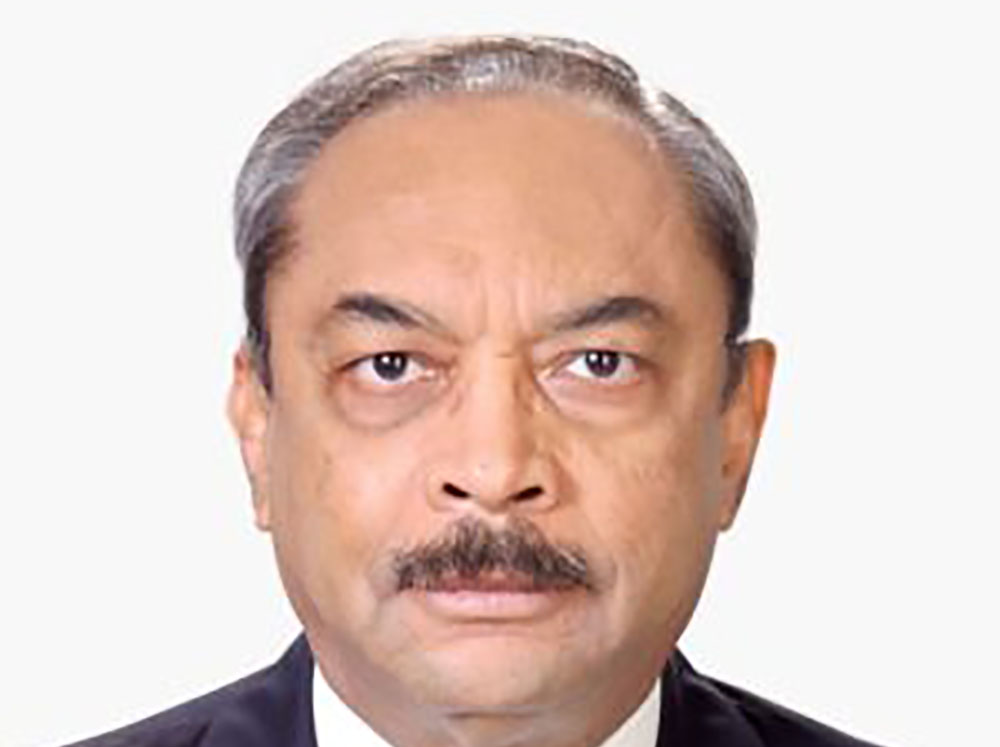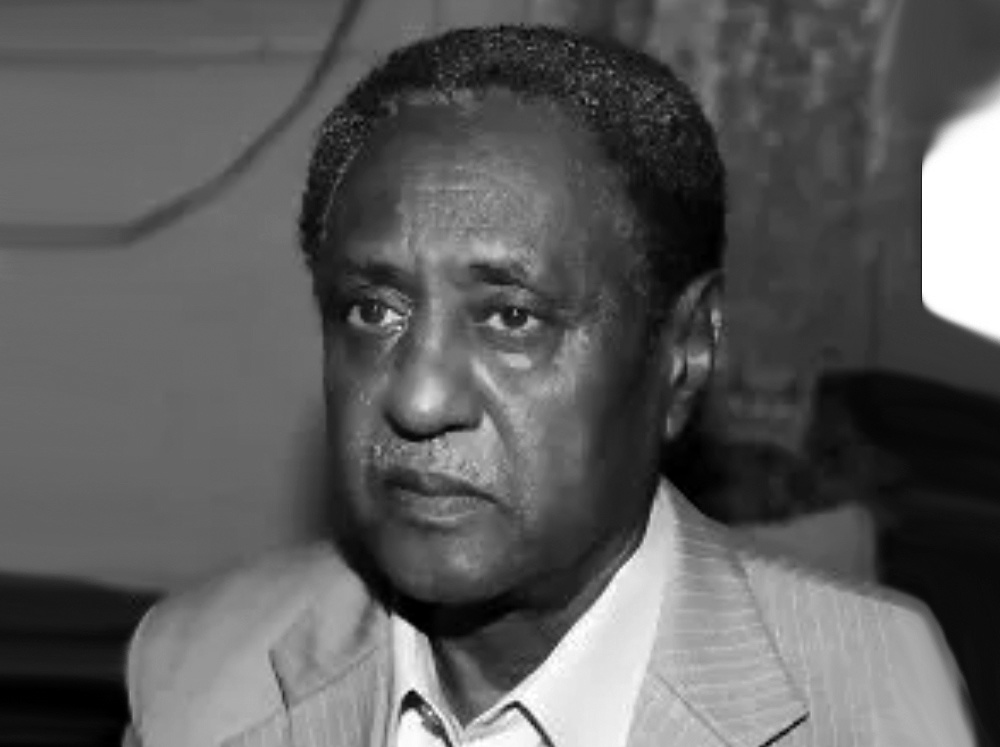
Elegy for the Departure of Omar al-Souri
In the 1960s, a delegation from Eritrea, led by the late Osman Saleh Sabbe Khalifa Hamid Awate, the founder of the Eritrean revolution against Ethiopian occupation, visited us at Al Sudan Al Jadid newspaper. Among the delegation was a young man with wheat-colored skin, a soft voice, and he introduced himself as Omar Jaafar al-Souri. He was of Sudanese descent, with his father being Sudanese, and his mother being Eritrean.
Omar continued to visit us from time to time, carrying reports of the military operations conducted by the rebels against the Ethiopian army. Over time, our friendship grew, and we invited him to join us as an editor in the editorial team, and he accepted. Omar became our colleague, covering parliamentary news, and he excelled in it, making our newspaper stand out with its captivating headlines, attracting more readers.
During that time, we discovered that Omar wasnt particularly interested in the parliamentary debates inside the assembly. Instead, he sought to find out what the passionate speeches concealed within the assemblys cafeteria. He aimed to understand the true behind-the-scenes positions of both the opposition and the government. This approach made our newspaper ahead of the competition, and its distribution increased. Sometimes, we had to print extra copies at night to meet the readers demands. This was the hallmark of a journalist who looked beyond the event itself.
In the leadership of Al Sudan Al Jadid, there were Fadl Bashir as the editor-in-chief, Yahya Alawad as the managing editor, Mahmoud Mohamed Madani handling domestic news, Omar al-Souri covering parliament, Kamal al-Jazouli with his Mashatil Fairooz page, and Taha Al-Mujamer handling foreign news.
Omar al-Souri stood out in acquiring exclusive news, a skill that Saad al-Sheikh, a prominent late journalist and owner of the Khartoum News Agency, recognized. Saad offered him a job at the agency, and although Omar left us editorially, he remained a friend. He continued to join our nightly gatherings in the beautiful Khartoum evenings, staying awake at the Khaharib, as our friend, the poet Kamal Abdel Majid, describes them. All this didnt distract him from the Eritrean revolution, a cause he dedicated himself to without any other distractions.
Omar didnt stay long in Sudan. In 1971, after Hashem al-Attas coup and the fierce campaign led by Jaafar al-Nimeiri against all leftists, including Eritrean revolutionaries, Omar migrated out of Sudan, heading to Syria, where he assumed responsibility for the media apparatus of the Eritrean revolution. The media apparatus was based in Damascus and had offices in Baghdad, Beirut, and Rome, under the leadership of Idris Ahmed Adam and Ahmed Nasser.
Omar al-Souri established a network of relationships with senior officials in the ruling Arab Baath Party in both Damascus and Baghdad, as well as with Syrian intellectuals, writers, poets, and researchers. His activities extended to Lebanon, where he built strong connections with political and literary figures. All of this helped shed more light on the Eritrean revolution, a feat that individual effort accomplished that political and social research institutions could not.
In mid-September 1980, Omar al-Souri, the Assistant Secretary-General of the Arab Journalists Union, arrived in Khartoum as a delegate to discuss the widespread dismissal of many opposition journalists, including those working at the Sudan News Agency and other newspapers. The Arab Journalists Union had received a detailed memo from the Sudanese Journalists Union explaining the circumstances and events surrounding the mass dismissal carried out by Ismail al-Haj Musa, Nimeiris Minister of Information, against the regimes opposition journalists. The Sudanese Journalists Union had been on the agenda of the Permanent Office of the Arab Journalists Union and its General Secretariat in more than one meeting in Baghdad.
Omar al-Souri came to Khartoum to address the crisis with Sudanese officials, led by the Minister of Information. Contrary to the expectations of the Arab Journalists Unions delegate, the meeting with the minister was noisy and hostile overall. During the two-and-a-half-hour meeting, the Minister read aloud lengthy articles he had written in Al Ayam newspaper about journalisms role in society, describing them as shallow, nauseating, and worthless. If it werent for the early breakfast Omar had that morning, he might have vomited on the ministers desk, which provoked sympathy and disdain.
Five minutes before the end of the meeting, Fathi El Tayeb, who was then the Undersecretary of the Ministry of Information, Mustafa Amin, the Director-General of the Sudan News Agency, and Taha Al-Mujamer, the Administrative Director of the Agency, entered the ministers office, carrying files and papers with them. The Arab Journalists Unions delegate was surprised by their entrance just before the meeting concluded, and Omar al-Souri greeted them, exchanging short conversations. Omar had worked with them before and had formed friendships with them. However, it didnt cross his mind that these files contained dismissal notices for members of the Executive Committee of the Sudanese Journalists Union from their journalistic roles, not union positions. The broadcast of the dismissal news didnt take long, and Omar al-Souri received confirmation of the news in a phone call from Youssef al-Shanbli, the legitimate Secretary-General of the Union.
The massacre of journalists was a humiliation for the Arab Journalists Union and a declaration of the governments refusal to engage in any mediation, escalating the situation. During the meeting, the minister told the delegate of the Arab Journalists Union that the authorities would continue their battle against what he referred to as the communist elements controlling the union. He accused the Arab Journalists Union itself of being an Iraqi tool and refused to discuss the matter further. For Ismail al-Haj Musa, it was all about maintaining his position, and if he didnt show this rigidity and pursue arbitrary measures against the journalistic opposition, al-Nimeiri would surely have removed him, and he was eager to hold on to his seat, even if it meant sending the dismissed journalists to hell.
The Arab Journalists Union delegate didnt achieve much, and it seemed that the Minister of Information was determined to continue his battle against the legitimate Sudanese Journalists Union, which he accused of being communist-controlled.
May God have mercy on Omar Jaafar al-Souri and grant him a place in paradise. Our condolences go out to his family, friends, colleagues, and all who knew him. His passing weighs heavily on our hearts.


